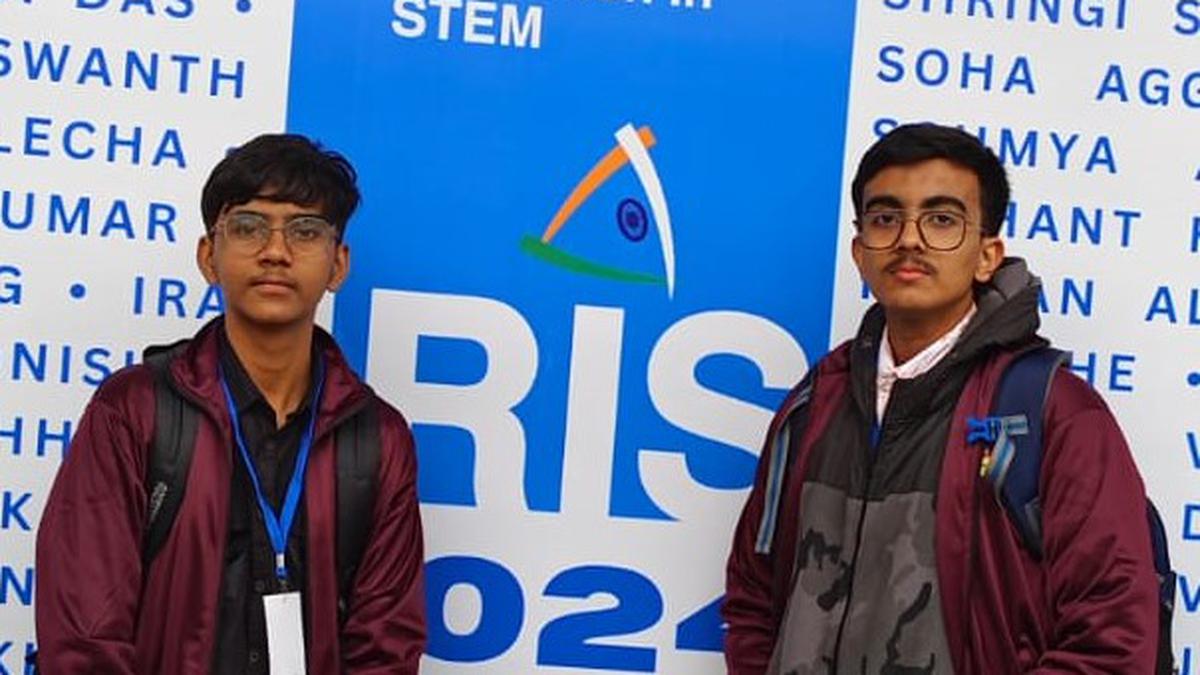
Govt. school students from Kozhikode to represent India in global science fair
The Hindu
Two students from rural Kozhikode make history by studying indigenous fishes for pest control at ISEF 2024.
Being part of team India in the International Science and Engineering Fair (ISEF) is an achievement most students could only dream of. But for two students from a government school in rural Kozhikode to be part of it is nothing short of a lifetime achievement.
Neeraj N. and Adithyan U.S., plus one students of N.N. Kakkad Memorial Government Higher Secondary School, Avitanallur, Kozhikode, are packing their bags for ISEF 2024 that will be held from May 11 to 17 in Los Angeles, United States, with their project titled ‘A comparative study of indigenous fishes in paddy fields for pest control and mosquito control in Avitanallur village’.
It started with Neeraj’s hobby of collecting and rearing fishes at home. “I had the feeling that fishes are somehow related to paddy. It was Sreeraj C.R., a scientist associated with the Zoological Survey of India who encouraged us to study their behavioural patterns,” Neeraj told The Hindu.
They first presented their project at the district-level Children’s Science Congress and then at the State-level event. Their project was shortlisted as one of the 16 best projects in India at the National Children’s Science Congress held in Ahmedabad last year.
But it was taken to the next level at the IRIS (Initiative for Research and Innovation in STEM) National Fair held in Delhi in January 2024, where the best five projects from the National Science Congress got a parallel entry. At the IRIS Fair, their project was shortlisted among the 20 best projects, earning them a slot in team India at ISEF.
The team was guided by Sheena T.C., Neeraj’s mother and Chemistry teacher at the same school. The students first collected and identified indigenous fishes as well as common pests such as rice case worms (Parapoynx stagnalis) and stem borer larvae (Scirpophaga incertulas), besides mosquito larvae from paddy fields in the locality. By observing their behaviour, the team understood that a fish species named ‘Karinkana’ (Pseudosphromenus cupanus) was the most effective in destroying pests.
In the project, the students have also highlighted the importance of organic farming in paddy. “We could not find any fish in the paddy field near our home where chemical pesticides were used. On the other hand, there were plenty of them in another field where organic farming was practised,” Neeraj said.

One dies, eight hospitalised after inhaling HCL fumes at pharma company in Andhra Pradesh’s Anakapalli district. About 400 litres of HCL leaked from the reactor-cum-receiver tank at Unit-III of the company, which affected nine workers, says Collector. While the condition of six of them is stable, two are on ventilator support. Chief Minister Chandrababu Naidu directs authorities to provide advanced treatment to the victims. Home Minister Anitha expresses anger over repeated such incidents.










